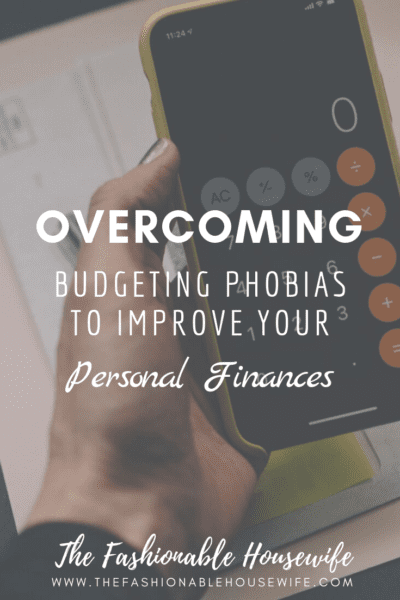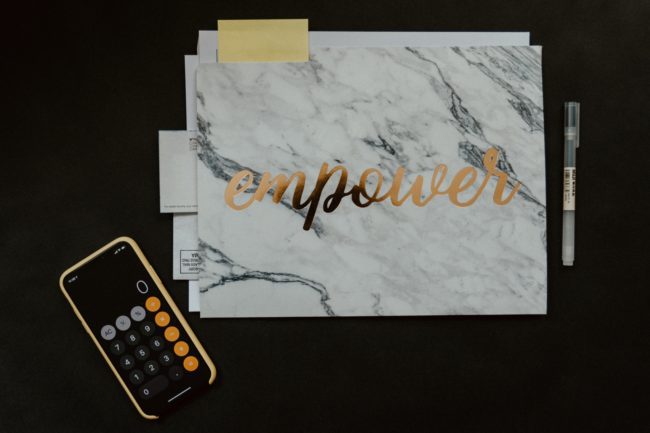
Nearly 70 percent of Americans have less than $1,000 in the bank, and around half can’t cover a $400 surprise expense without borrowing money or selling something.
What’s the root cause of these findings? Spending beyond our means would appear to be the answer, however, it goes one step further: Americans are bad at budgeting.
It’s not that people are setting budgets and ignoring them, rather, they’re failing to budget in the first place. Per a Gallup poll, just 32 percent of U.S. households maintain budgets. We can’t get ahead if we have no idea where we stand with our monthly spending. However, most of us don’t take that step because we have some kind of budgeting phobia.
Let’s look at how to overcome whatever budgeting phobia ails us so we can improve our personal finances.
Accept Your Fear
Before you take any concrete step to setting your budget, it’s helpful to take a step back and ponder why you haven’t budgeted in the past. Some people are afraid to know the amount they spend. Others are terrified to accept the reality that they won’t have any money to retire if they continue living this way. While it might seem easier to ignore the negative thoughts or get by in a state of blissful denial, we’re only solidifying our habits and digging ourselves into holes. At some point, we might not be able to reverse the damage.
Like improving any unhealthy habit, we need to face our shortcomings head on if we want to correct course. We need to understand that a budget isn’t scary or out to get us — that it’s actually a life vest in a sea of increasing consumer temptation.
Add Up Your Debt
It sounds obvious to know how much debt we’re in, but many people have no idea. This leads to irresponsible habits like paying the minimum on debt, or worse, ignoring our debt altogether.
Adding up how much you owe will conjure similar fears as diving into your spending patterns, but it’ll give you the same wave of relief once you gain control over your situation It’s also impossible to set a budget without knowing the amount of money you owe, the interest rates, and how long you imagine it takes to get out of debt.

Evaluate How You’ve Been Spending
You’ll need an easy way to get started budgeting now that you have a fresh perspective and are determined not to let hollow fears get in the way of your financial goals. But before you can set a budget, you’ll need to understand your spending. If you’re old school, this might be jotting down every purchase in a notebook. If you’re more into apps, then personal finance management apps like Clarity Money do the heavy lifting for you. These apps sync with your financial accounts and track every purchase you make. You’ll still have to track how you spend cash, but the bonus of using apps is that you can see your historical spending habits.
Set Your Budget
Now that you have your work cut out for you, it’s time to put the finishing touches on your financial wellness. Like all finishing touches though, this process is delicate and requires careful attention to detail.
How much are you earning per month and how much have you been spending historically? What regular expenses can you live without? What regular expenses can you trim if you become more frugal or resourceful.
Popular budgeting strategies are the straightforward 80/20 rule, which sets 20 percent of income to debt/savings and 80 percent to everything else, and the 50/30/20 rule, which sets 20 percent to debt/savings, 30 percent to wants and 50 percent to needs. As with most financial strategies though, don’t feel the need to follow anything to a tee. Each person’s circumstances differ.
Depending on how much debt you have, you might need to allocate 30 percent of income to it. If you live in an area with low cost of living, then needs might not need to comprise half of your income, especially with more pressing matters to tend to, like debt and savings.
Envision a Long-Term Goal
Even with a solid budget intact, there will be plenty of days where you’re struggling to find the motivation to keep to your responsible habits. This is why it’s helpful to have a long-term goal. The goal doesn’t need to be super specific with a bunch of nuanced details, it just needs to reflect a certain quality of life that you desire. Having this vision in your mind will help fuel you through the times when you’re lacking willpower and discipline. It’s also important not to make the goal too ambitious. Otherwise you could risk losing your motivation if you feel that you’re not making proper progress.
Far more goes into overcoming budgeting phobias than trying to start a budget, which is why you need to put the proper work in ahead of time. Dig to the root of your phobia(s), get a handle on how much debt you’re in, and analyze your spending history before you set a budget. And when you do, it helps to think of where you want to be in the future to increase your chances of staying committed during the more difficult days.



